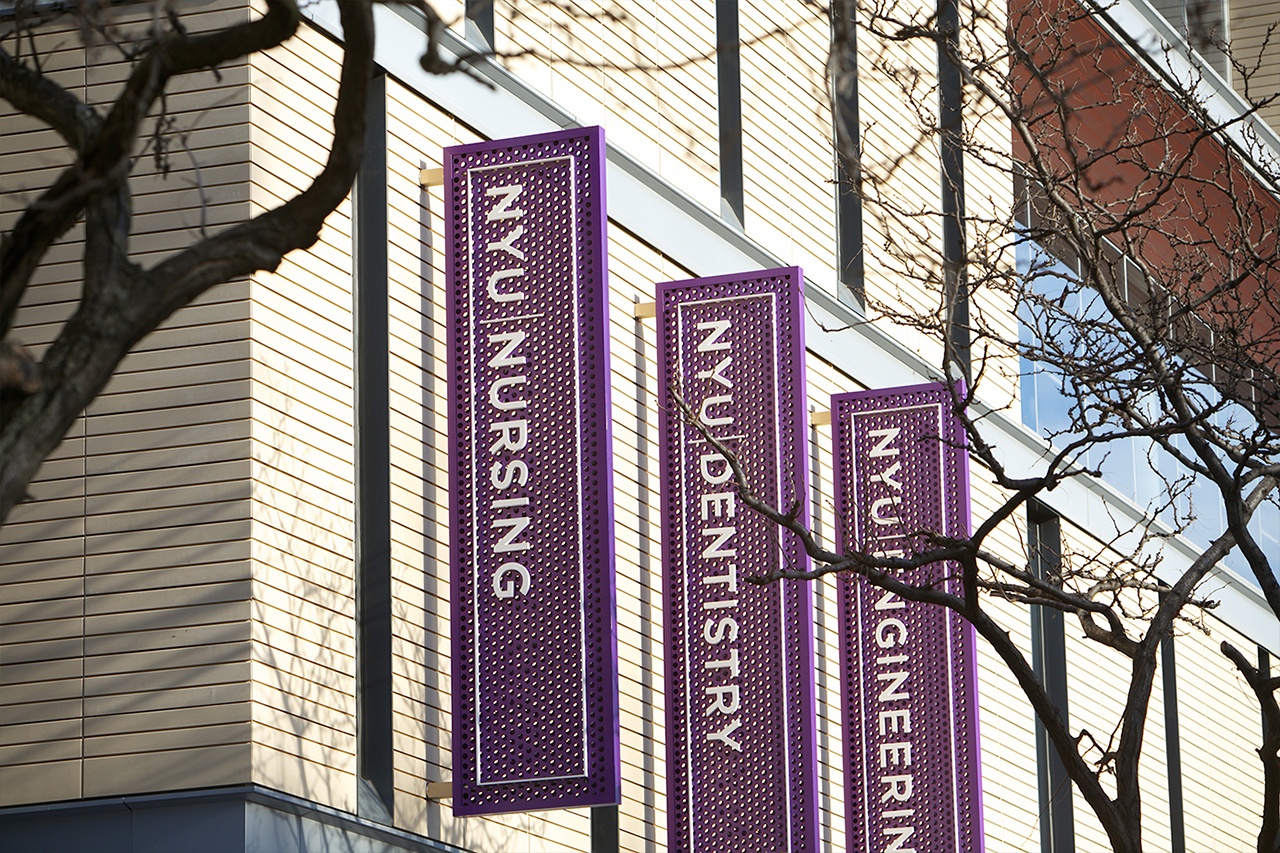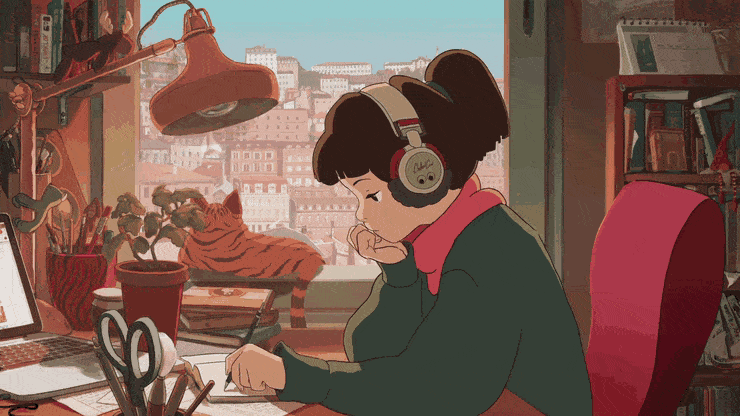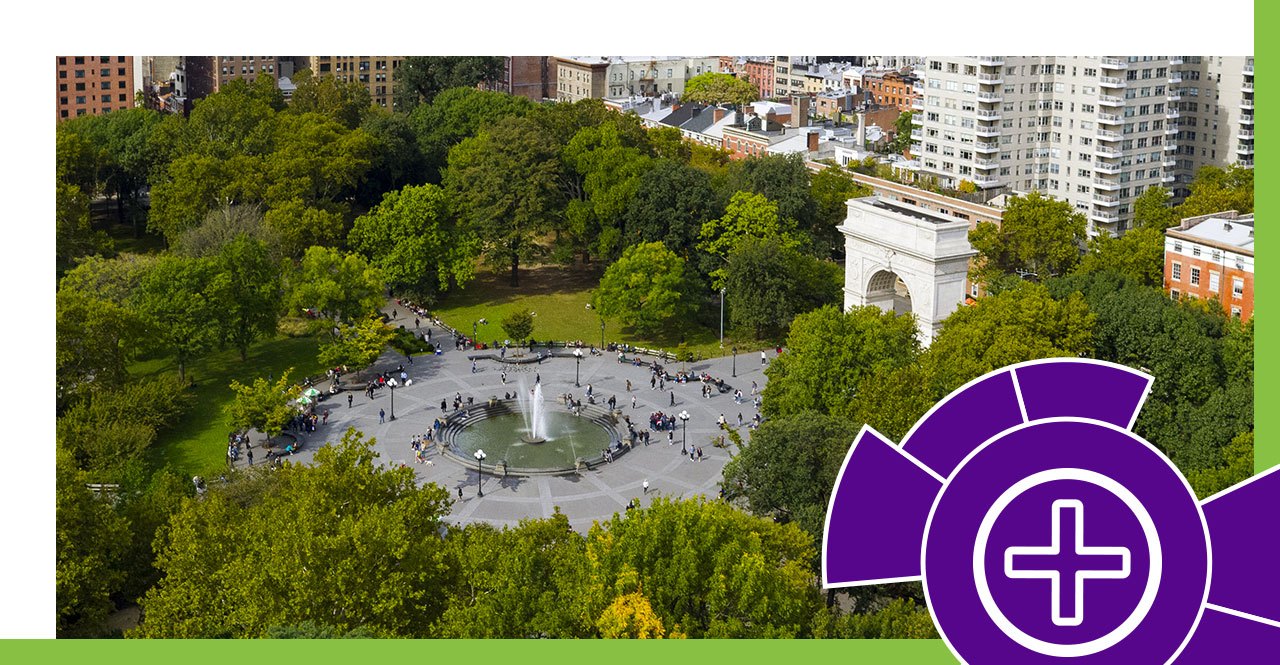The NYU Big Ideas Course Series, launched this fall, is this perfect fusion of technology, student curiosity, faculty expertise, and the conversations that dominate areas such as social justice, the arts, sports, and artificial intelligence today. The series consists of 17 two-credit classes, all of which were offered virtually in fall 2020. Classes are either seven or 14 weeks long and are open to all NYU undergraduates regardless of major or home campus.
“We asked ourselves, how can we utilize the technology we have at our disposal to showcase the intellectual and creative capacity of our faculty, and develop that into tangible teaching, learning, and engagement opportunities for students in ways we’ve never done before?” says Charlton McIlwain, a professor of Media, Culture, and Communication and the Vice Provost for Faculty Engagement and Development at NYU. When he sat down with Provost Katherine Fleming and the rest of the provostial team at NYU, they already knew the fall 2020 semester would look different because of COVID-19. But they wanted that difference to be intentional. Their goal was to turn restrictions into opportunities. “It was all about the creative ways we could mobilize the strengths of NYU to develop a new academic experience,” says Dr. McIlwain. “That’s where the idea for the NYU Big Ideas Course Series started.”
NYU Big Ideas: Champions
Course instructors hail from all over the globe and are leaders in a wide range of fields, offering diverse, valuable perspectives to students in any discipline. “Take the School of Professional Studies‘ Champions course that features leaders in the field of professional sports, or the Tisch School of the Arts‘ Imagining the Future Through the Arts class that engages renowned actors, poets, musicians, and fashion designers—many of whom are NYU alumni,” Dr. McIlwain explains. Courses like Identity and Thinking, Learning, and Consciousness in Humans and Machines bring in new lecturers every week to give students a taste of the breadth of the fields. “In no other circumstance, and at no other institution, are students across a university able to engage faculty and leading professionals of this caliber.”
NYU Big Ideas: Meredith Broussard on Artificial Unintelligence
Food For Thought
Professor Marion Nestle’s class Food Politics rose out of current events, just like many other NYU Big Ideas Course Series offerings. In the class, Dr. Nestle calls out the problems that COVID-19 has revealed in our food system. Those include underpaid and poorly treated meat packing workers and grocery store clerks, the destruction of food as the unemployed wait for food handouts, and the realization that schools are as much about feeding kids as they are about education, to name a few. “Everyone eats,” Dr. Nestle says. “Nothing could be more relevant at this moment, and I hope students will recognize that food connects to the most important social, economic, and political issues facing society today.”
For some students, Dr. Nestle’s class is an extension of already-present interests. College of Arts and Science sophomore Lincoln Dow explains, “As a Politics major concerned with how to make this country function better, it would be a huge oversight to not consider something as crucial as food policy.” For others, the course material allows for brand new connections. “I had never before considered the way in which access to food is a root cause of so many other socio-political issues,” says NYU Abu Dhabi sophomore Joelle Bohringer. “This class helps provide a unique perspective that I can apply in my studies in the humanities and social sciences.”
NYU Big Ideas: Marion Nestle on Food Politics & Inequities Exposed by COVID-19
Question Everything
In Professor Michael Beckerman’s NYU Big Ideas course Music and the Coronavirus, students use a topic that’s on everyone’s minds to pursue a deeper way of thinking. “While it seems obvious that the coronavirus and social justice are relevant, this course goes beyond in encouraging students to question everything they encounter—to find new ways, through watching videos, in-class lectures, guest artists, and discussions, to come to new conclusions about things they may have thought they knew well,” says Dr. Beckerman, who also teaches Music, Sound, Oppression, Rebellion, Liberation.
Music and the Coronavirus class sessions focus on historical context, the ways people have used music as a source of solace and inspiration during the pandemic, and how the industry has changed. But for Dr. Beckerman, it’s the students who hold the reins for the overall experience. “Push your professors, make sure you ask questions—everything to make the experience better,” he encourages. “The idea is to have students be in a state of genuine excitement about learning. In that state, everything they study will shine more brightly.”



